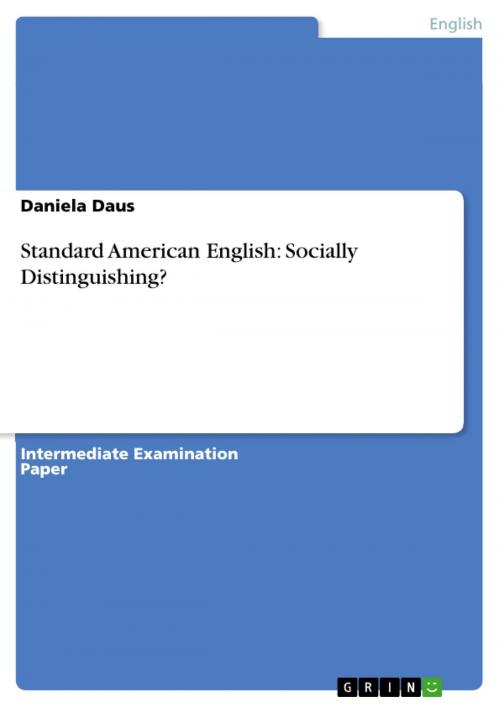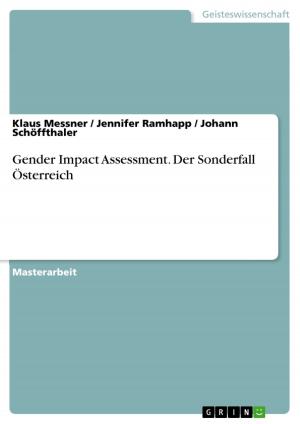| Author: | Daniela Daus | ISBN: | 9783638488082 |
| Publisher: | GRIN Verlag | Publication: | April 10, 2006 |
| Imprint: | GRIN Verlag | Language: | English |
| Author: | Daniela Daus |
| ISBN: | 9783638488082 |
| Publisher: | GRIN Verlag |
| Publication: | April 10, 2006 |
| Imprint: | GRIN Verlag |
| Language: | English |
Intermediate Examination Paper from the year 2004 in the subject American Studies - Linguistics, grade: 2.5, Johannes Gutenberg University Mainz, course: PS Regional and Social Varieties of American English, 6 entries in the bibliography, language: English, abstract: Language variation could also be called '. . .the most basic and fundamental of human socialisation tools.' You need language to express yourself, to learn things, to communicate and to get educated. Without language, an independent life is hardly to live. As long as people speak, there always have been dialects and individual ways of speaking in one language. British English for example, during the twelveth and thirteenth century, was spoken in four varieties, besides French and Latin. Throughout the fourteenth and fifteenth century, the more unified Great Britain needed some kind of 'Standard', to cope with official tasks and affairs. So, at some point, it seems necessary to compromise on one way of speaking for official matters. This paper will focus on 'Standard American English' as a sociolinguistic tool: A brief history of American English will be given and definitions of 'Standard American English' will be discussed. The central question of this paper will be: Why there is a need for the so-called 'Standard'? Whom does it serve? Is it an 'ideology' of the upper classes to distinguish them also linguistically from the lower classes? Or is the function of 'Standard American English' solely to enable the American people to communicate on an even level, despite the various dialects? Further, the example of New York City speech will be given, to show that 'Standard' seems to be necessary for 'upward mobility'.
Intermediate Examination Paper from the year 2004 in the subject American Studies - Linguistics, grade: 2.5, Johannes Gutenberg University Mainz, course: PS Regional and Social Varieties of American English, 6 entries in the bibliography, language: English, abstract: Language variation could also be called '. . .the most basic and fundamental of human socialisation tools.' You need language to express yourself, to learn things, to communicate and to get educated. Without language, an independent life is hardly to live. As long as people speak, there always have been dialects and individual ways of speaking in one language. British English for example, during the twelveth and thirteenth century, was spoken in four varieties, besides French and Latin. Throughout the fourteenth and fifteenth century, the more unified Great Britain needed some kind of 'Standard', to cope with official tasks and affairs. So, at some point, it seems necessary to compromise on one way of speaking for official matters. This paper will focus on 'Standard American English' as a sociolinguistic tool: A brief history of American English will be given and definitions of 'Standard American English' will be discussed. The central question of this paper will be: Why there is a need for the so-called 'Standard'? Whom does it serve? Is it an 'ideology' of the upper classes to distinguish them also linguistically from the lower classes? Or is the function of 'Standard American English' solely to enable the American people to communicate on an even level, despite the various dialects? Further, the example of New York City speech will be given, to show that 'Standard' seems to be necessary for 'upward mobility'.















